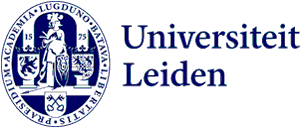
Tackle debt with healthcare funds: researchers on a healthier society for all
Technology, medical knowledge, social measures and the design of the living environment: all these needed to achieve a healthier society. In a series of interviews, 14 researchers from Zuid-Holland, including from Leiden University, argue for an integrated care approach.
The interviews can be found in the white paper Naar een gezonde samenleving voor iedereen (Towards a healthy society for all), which was published on 15 November. The interviews are the initiative of Healthy Society, a collaboration between Leiden-Delft-Erasmus Universities and Medical Delta, with the aim of providing policymakers, administrators and politicians with scientific insights.
Mould and safety
In the paper, the 14 researchers sit down together in pairs to discuss different aspects of the theme. They come up with surprising takes on health and how policy can influence it. Political scientist Jet Bussemaker, for example, explains why it is worth using healthcare funds to tackle debt. She and others emphasise that you sometimes have to start at a point far removed from someone’s lifestyle.
‘When you really start talking about what people are concerned about, you hear about existential insecurity, mould in houses, unsafe neighbourhoods, and worries about the kids. Stressing about these kinds of things gets in the way of healthier living.’
Environmental behaviour and design expert Machiel van Dorst advocates, among other things, wider walkways and corridors in blocks of flats to promote social interaction, gynaecologist Eric Steegers wants to reduce infant mortality in poor neighbourhoods and asks pregnant women about their money worries and health psychologist Semiha Denktaş talks about successful conversations doctors and students had in markets in Rotterdam neighbourhoods where coronavirus vaccination rates were low.
Expertise and talent
Professor of Healthy Society Andrea Evers selected the researchers for the interviews together with scientific coordinator Sandra van Dijk. She adds, ‘We’re really pleased to have so much expertise and talent in these fields within Leiden-Delft-Erasmus Universities and Medical Delta and are delighted that many of us are already working together across the disciplines. The white paper thus covers a plethora of social aspects of health, from debt relief and housing conditions to care for vulnerable groups and insights on how to influence some behaviours and prevent others, to name just a few examples.’
Frank Willem Jansen, President of Medical Delta:
‘The themes in this white paper show how broad the topic is and demonstrate the need for cooperation across domains, interests and academic disciplines. Interdisciplinary research and teaching cannot do this without the strong involvement of business, healthcare organisations, government and other social partners – not to mention the people concerned.’
Wim van den Doel, Dean of Leiden-Delft-Erasmus Universities:
‘Universities want to be relevant to society, and they are, by virtue of the teaching and research they do. This white paper seeks to make the findings of research on a healthy society accessible to society. It offers 32 insightful findings and 16 action points on the basis of which citizens and policymakers can set to work, together with researchers.’
